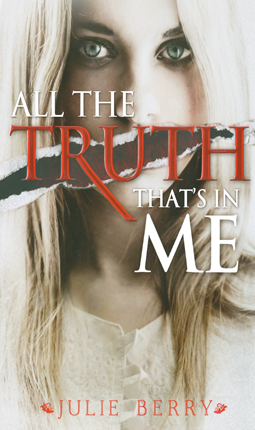Full Text Reviews: School Library Journal - 08/01/2013 Gr 8 Up—The village setting of this novel evokes the rigid religious communities of Colonial times, but Berry cleverly sets her story in an unnamed time and place so the protagonist's anguish and the town's mystery are the focus. Sixteen-year-old Judith is still in love with Lucas, even after his father held her prisoner for two years and violently silenced her by cutting out part of her tongue. Another girl went missing at the same time and her body was found washed down a stream. Only Judith knows the truth of what happened to Lottie, but her muteness leaves her an outcast in the village, even from her own mother, and the truth stays bottled up inside her. Told from Judith's narrow, troubled perspective, the story unwinds in taut chapters that peel back what happened two years before and gradually allows Judith to find her voice again. The austerity of the village and its harshly judgmental inhabitants help sustain a mood of dread. Judith does find tenderness in surprising places, and these secondary characters relieve not just her isolation but also offer readers moments of fun and promise as well. Lyrical language, a good mystery, and a compelling heroine-this is a page-turner with substance.—Martha Baden, Prescott Public Library, AZ - Copyright 2013 Publishers Weekly, Library Journal and/or School Library Journal used with permission. Booklist - 08/01/2013 Like all things in this cunningly stylized novel, the setting is left undefined; a rough guess is mid-1800s America. The characters and plot, too, are mysteries in need of unfolding, and Berry’s greatest accomplishment is jumbling the time line with confidence, thereby sprinkling every page with minor (or major) revelations. These trappings gild a not-that-unusual melodrama: 18-year-old Judith pines for Lucas, who has chosen another girl. Perhaps this is because Judith is mute, her tongue having been cut off by a madman—who just happened to be Lucas’ father. A few frustrating misunderstandings aside, the story gracefully incorporates everything from the right to education to the horrors of war to the freedom that comes along with acquiring language. What will stick in most readers’ minds, though, is the first-person prose, which ranges from the unusually insightful (“We were four people: the children we’d been, and grown strangers now”) to the just plain pretty (“Will her china face turn bronze beside you as you labor in your fields?”). A strange but satisfying—and relatively singular—mix. - Copyright 2013 Booklist. Loading...
|



